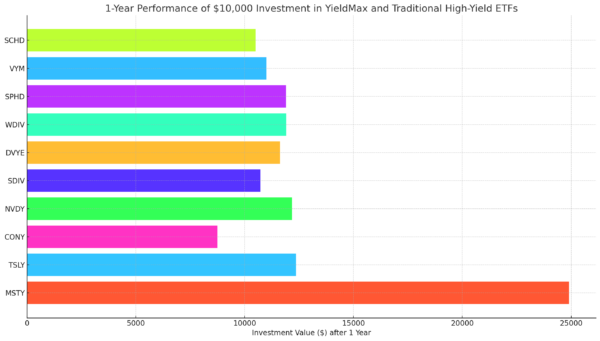5 Best Grocery Store Stocks in 2023
The list of the best grocery store stocks below provides some solid investing opportunities. The companies behind them all have stable sources of income. And this helps with rewarding shareholders.
There are many reasons to invest in the best grocery stores. So, let’s first look at some of the top reasons to buy. Then below that, we’ll dive into the grocery store companies. And to wrap up this research, we’ll dive into some risks to consider as well.

Why Buy Grocery Store Stocks?
As mentioned, grocery stores have stable sources of income. No matter what happens in the markets, people need to eat. And this allows for predictable cashflows. As a result, we don’t see as much stock price volatility compared to other sectors.
On top of that, this consistency helps with paying dividends. All of the companies below continue to reward investors by returning some of their cashflows. And most of them have long track records of paying investors more each year…
For example, Target has paid bigger dividends each year for close to 50 years. That’s through the thick and the thin. The company has survived and thrived through many market downturns and turned itself into a dividend king.
Another huge benefit for the best grocery store companies is pricing power. As commodity and fuel prices climb, so do food prices. But since people need to eat, the best grocery stores can pass along higher costs to customers. This makes these stocks a great long-term inflation hedge…
Grocery Store Stocks
After checking out the company highlights below, here are some fast food stocks to consider as well. And going further down the food chain, here are some of the best agriculture stocks. But without further ado…
No. 5 Target (NYSE: TGT)
Dividend Yield: 2.8%
Target is based in Minnesota and is easily within the top 10 retailers in the U.S. The company provides a wide range of goods. Although, its grocery stores help keep people coming back on a regular basis, making it a top grocery stock.
Target operates in all 50 states and 75% of the U.S. population lives within 10 miles of a Target store. The company also continues to adapt to consumer trends. Just a few months after the pandemic started, Target provided fresh and frozen grocery pickup at 1,000+ stores. The company continues to improve its e-commerce to retain and reach new customers.
No. 4 Kroger (NYSE: KR)
Dividend Yield: 2.4%
Kroger is based in Ohio and is one of the largest retailers in the U.S. It’s not as well-known as Target but its total sales are higher. Kroger operates department and grocery stores under various banner names.
This approach provides brand and strategy diversification. And even though Kroger isn’t as well known, it continues to pay investors bigger dividends. In mid 2022, this grocery stock’s board of directors raised its quarterly dividend by 24%.
No. 3 Walmart (NYSE: WMT)
Dividend Yield: 1.7%
This list of grocery store stocks wouldn’t be complete without Walmart. It’s a household name that’s built up an impressive supply chain. And with its global reach, Walmart has solid pricing power.
Walmart has more than 200 distribution centers. This makes it one of the largest in the world for stores, clubs and direct delivery to customers. Walmart is also improving its e-commerce tech and investing in future technologies such as vertical farming. To learn more about that growing trend, here are some of the top vertical farming stocks.
Keep Reading This Article and Find Out the Top 2 Grocery Store Stocks to Buy Now
Enter your email below to reveal the top two grocery store stocks to buy.
You’ll also be opted in to receive our free daily e-letter, Liberty Through Wealth, where you’ll find expert investment insight, analysis and stock picks for all the best investment opportunities.
Nunc ut lorem quis urna auctor ornare quis in sem. Donec sodales viverra ante, et scelerisque libero iaculis sit amet. Phasellus fermentum vitae tellus quis suscipit. Ut bibendum aliquet odio, a venenatis augue fermentum at. Nunc fringilla dui lorem, congue blandit ex egestas in. Vestibulum dapibus orci ut felis consequat euismod. Sed pretium, risus vel blandit porttitor, diam diam sodales dui, in lobortis lorem ex vitae est. Nullam ac venenatis massa. Integer blandit, diam et fringilla semper, nulla dui suscipit urna, eget hendrerit quam ex rutrum tellus. Nam imperdiet, nibh nec mollis vulputate, felis ante posuere leo, at ultrices nulla neque vitae mi.Nunc ut lorem quis urna auctor ornare quis in sem. Donec sodales viverra ante, et scelerisque libero iaculis sit amet. Phasellus fermentum vitae tellus quis suscipit. Ut bibendum aliquet odio, a venenatis augue fermentum at. Nunc fringilla dui lorem, congue blandit ex egestas in. Vestibulum dapibus orci ut felis consequat euismod. Sed pretium, risus vel blandit porttitor, diam diam sodales dui, in lobortis lorem ex vitae est. Nullam ac venenatis massa. Integer blandit, diam et fringilla semper, nulla dui suscipit urna, eget hendrerit quam ex rutrum tellus. Nam imperdiet, nibh nec mollis vulputate, felis ante posuere leo, at ultrices nulla neque vitae mi.
Integer blandit, diam et fringilla semper, nulla dui suscipit urna, eget hendrerit quam ex rutrum tellus. Nam imperdiet, nibh nec mollis vulputate, felis ante posuere leo, at ultrices nulla neque vitae mi.Nunc ut lorem quis urna auctor ornare quis in sem. Donec sodales viverra ante, et scelerisque libero iaculis sit amet. Phasellus fermentum vitae tellus quis suscipit. Ut bibendum aliquet odio, a venenatis augue fermentum at. Nunc fringilla dui lorem, congue blandit ex egestas in. Vestibulum dapibus orci ut felis consequat euismod. Sed pretium, risus vel blandit porttitor, diam diam sodales dui, in lobortis lorem ex vitae est. Nullam ac venenatis massa. Integer blandit, diam et fringilla semper, nulla dui suscipit urna, eget hendrerit quam ex rutrum tellus. Nam imperdiet, nibh nec mollis vulputate, felis ante posuere leo, at ultrices nulla neque vitae mi.
Top Risks to Consider
When investing in any stock, it’s always good to consider the risks. And since I’ve already touched on some big benefits, let’s now look at some downsides…
The grocery store industry is capital intensive and has low margins. As a result, most of the companies above have high levels of debt. This reduces financial flexibility but it’s a fairly level playing field for the best grocery store companies.
For another big risk, newer e-commerce companies like Amazon have put a lot of pressure on traditional retailers. More consumers are ordering groceries online and even having them delivered. As a result, the traditional grocery giants are having to adapt.
Another big consideration is limited growth for grocery store stocks. Unlike some emerging technologies, the grocery market isn’t going to see huge sales growth. As mentioned above it’s more predictable. And this lowers risk but also limits upside potential. That’s why investors tend to keep these companies at lower valuation multiples.
Investing Beyond Grocery Store Stocks
The grocery store stocks above are some of the best in the industry. Their supply chain integration and size help with pricing power. And with providing necessary goods, customers keep coming back.
Although, there are many other investment opportunities today. Here are some other food-related stocks to consider…
By buying a wide ranges of stocks, you can lower your portfolio risk. And it’s always useful to do your own research. Consider both your ability and willingness to invest. And feel free to continue exploring more of the top investing research today…





